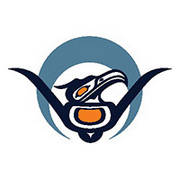(Lheidli T’enneh Territory – Prince George) – The Red Cross and First Nations Health Authority (FNHA) are celebrating a record number of First Nation individuals across B.C. that graduated as part of the First Nations First Responders program. The final graduation for 2015 took place on December 3, 2015 in Prince George and in the last year, 118 First Responders were trained in First Nation communities throughout B.C.
“First responders are essential to enhancing emergency services closer to home and where they are needed most,” said First Nations Health Authority Chief Operating Officer Richard Jock. “We are pleased to partner with the Red Cross for this program and honoured to have been given the Partners in Humanity Award from the Red Cross for this very important and successful work this year.”
The First Responders program is designed to provide local community leaders with the knowledge, skills and tools required to respond to illness or injury while awaiting the arrival of paramedics or evacuation to more advanced medical care. A number of graduates have already used their skills in emergency events in their communities, as well as leading to professional opportunities.
“Together, we are empowering community members to be comfortable leading during a time of stress, injury or urgency,” said Health Minister Terry Lake. “I’m glad to see how many have been trained so far, and I am proud that we are making headway on the commitment we made in the Transformative Change Accord: First Nations Health Plan to enhance First Responders training.”
The personal empowerment of the training is an added bonus for the individuals who become qualified and equipped to offer help in an emergency as First Responders and licenced Emergency Medical Assistants.
“Hundreds of people living in rural and remote First Nation communities will benefit from having First Responders close at hand,” said Red Cross Manager for Northern and Aboriginal Engagement, Becky Row. “We believe this initiative has already saved lives. Shortly after graduation, many of the First Responders in other regions have been called to action, providing assistance in their community. It’s truly an honour to have the opportunity to work so closely with the First Responders and First Nations Health Authority on this very important work.”
FNHA and the Red Cross are building partnerships with other emergency service organizations such as BC Emergency Health Services, which includes the BC Ambulance Service, the RCMP, and First Nations Emergency Services Society to ensure emergency response services are integrated with the greater provincial system. The First Nations First Responder program is also working with communities to help integrate First Responders into their broader health and emergency programs.
“BC Emergency Health Services (BCEHS) deeply appreciates the assistance of first responders who dedicate themselves to helping others during medical emergencies,” said BCEHS Executive Vice-President, Linda Lupini. “The commitment and energy of these new graduates will help the very people who live in their own communities throughout the province, and for that, we thank them.”
About the Red Cross:
For more than 60 years, the Canadian Red Cross has been a national leader in injury prevention programs. More than 1.5 million Canadians are trained in Red Cross First Aid, CPR, and Swimming and Water Safety programs each year through our Training Partners across the country.
About the First Nations Health Authority:
The First Nations Health Authority (FNHA) is the first province-wide health authority of its kind in Canada. In 2013, the FNHA assumed the programs, services, and responsibilities formerly handled by Health Canada’s First Nations Inuit Health Branch – Pacific Region. The FNHA works to reform the way health care is delivered to First Nations in British Columbia (BC) through direct services and collaboration with provincial partners



Be the first to comment on "Record number of First Nations First Responders graduate in BC"